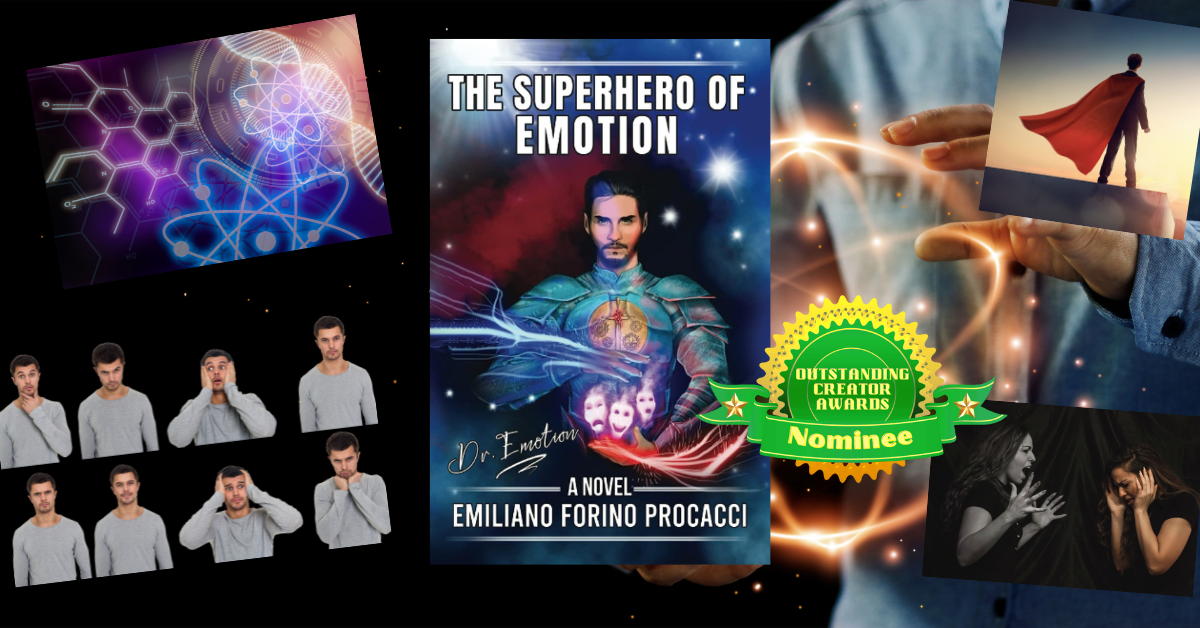|
Score: 94/100 (9.4 out of 10)
We were extremely impressed by the deep, creative concepts and compelling characters in The Superhero of Emotion by Emiliano Forino Procacci! Leading the charge of compelling characters is Nicola, an Italian scientist and visionary who strives to invent a way to extend and improve human life on Earth. Nicola essentially follows the Dr. Frankenstein archetype, although his motives seem virtuous throughout the process. Unfortunately, the world is full of corrupt, power-hungry, megalomaniacal, and unscrupulous people who look to weaponize every invention or to use it for personal gain. Similar to Walter White's actor in Godzilla (2014), we were surprised that Nicola—who seemed like he was going to be the predominant protagonist—takes a backseat to his son, Oscar, relatively early on. But Nicola's influence and legacy lingers throughout the book, especially inspiring Oscar, someone who adopts many of his father's positive traits. Oscar has a good heart, and is ultimately a likable protagonist that you find yourself rooting for. Oscar is, unsurprisingly, the titular “superhero of emotion”--born with a gift to influence (“manipulate”) the emotions of others. This book seems to take the premise that the ways of the world are largely influenced by emotions; and, unfortunately, pride, arrogance, and greed rank near the top of those emotions. These negative emotions are embodied by the villain, Alexandros, a man who seems possessed by pride, arrogance, and greed to the point of megalomania. He believes that he is “god” in his own mind and wants to play god to the rest of humanity, using the good that Nicola and Oscar brought/bring to the world for his own personal advancement. This is similar to what happens in real life whenever someone comes up with a major invention or innovation—someone out there is willing to pay, lie, or steal to misuse the invention or innovation. The Wright brothers gave humanity flight and aviation, but the governments and militaries of the world strapped guns to them and loaded them with bombs and missiles in the century following that. Even the Internet was largely commissioned for military purposes during the Cold War. There are also people out there who take advantage of the good will of others. Elizabeth Holmes is one such example, committing multi-million-dollars worth of fraud to promote a medical concept that was unproven and didn't work. You kinda get the sense in this book that, while death sucks, it exists for a reason. If people can't die, then evil people like Alexandros or Hitler can live on indefinitely, causing widespread and long-lasting devastation and suffering. Anyway, that's what we gathered from it. Emma is also an appealing character, which is funny because she is really in the background most of the time. There's something about her that's charming and alluring despite the fact that she clearly plays third fiddle to the rest of the cast. For some reason we can't quite describe, we found ourselves drawn to her and wanting her to be safe and to succeed in everything she was doing. There's also a really awesome rant in this book in which a character hijacks a lecture and gives a speech about how workers become like slaves to the system: chained to their desks and forced to work like ants until retirement/death with only the illusion of freedom and rights hanging over their heads. To quote: “...the dictatorships of the past understood that social control is not achieved by force but by money!” and “The global economy is the real ruin of all. Millions of people every day are induced to buy consumer goods, and the more they do it, the more they become slaves because they have to work more to obtain more money to spend. Without realizing it, they throw away the best years of their lives within the walls of an office until one day, they wake up and discover that they are old and entitled only to a paltry pension.” Now, we champion capitalism—it's the best system that we've found so far—but there is truth to the above argument. Many of us work to make others rich: so that the CEO can buy a mansion(s) while we live paycheck to paycheck just to pay the rent. There's actually a lot of existentialism and economics in this book that we appreciated. Check this out on Amazon!
0 Comments
Leave a Reply. |
Archives
July 2024
Categories |

 RSS Feed
RSS Feed